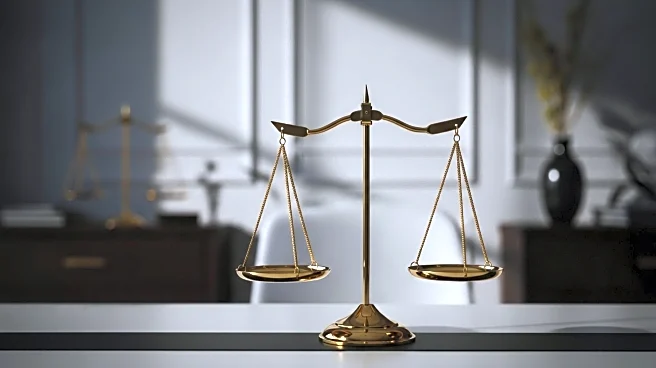What's Happening?
James Cullen, the chief of staff to New South Wales Premier Chris Minns, is embroiled in a legal battle with the state parliament over its authority to compel witnesses to testify before parliamentary committees. Cullen has filed a case with the NSW court of appeal to avoid appearing before a committee investigating the leak of confidential minutes related to the proposed sale of Rosehill racecourse. The minutes, considered privileged, were leaked to the media before the committee's report was released. Cullen argues that the summons undermines the institutional integrity of the supreme court, claiming the 1901 law is unconstitutional as it fails to respect judicial independence. The Legislative Council's privileges committee, which issued the summons, is prepared to defend its position, asserting its power to compel witness attendance under the Parliamentary Evidence Act.
Why It's Important?
This legal confrontation raises significant constitutional questions about the separation of powers between the judiciary and the legislature. The outcome could impact how parliamentary committees enforce their orders and the extent to which ministerial staff can be held accountable. If Cullen's challenge succeeds, it may limit parliament's ability to compel testimony, potentially affecting governmental transparency and accountability. The case also highlights the tension between executive staff and legislative oversight, a crucial aspect of democratic governance. Legal experts suggest that the case could set a precedent for how parliament interacts with ministerial advisors, influencing future inquiries and the balance of power within the government.
What's Next?
The NSW court of appeal is expected to expedite the hearing due to its implications for parliamentary authority. The privileges committee has engaged senior counsel to represent its interests, indicating a robust defense of its powers. Should the court rule in favor of Cullen, it may necessitate legislative reform to address the constitutional issues raised. Conversely, a ruling against Cullen could reinforce parliament's ability to enforce its orders, potentially leading to his arrest for non-compliance. The decision will likely influence future interactions between ministerial staff and parliamentary committees, shaping the landscape of political accountability in New South Wales.
Beyond the Headlines
The case underscores the complex relationship between different branches of government and the evolving nature of constitutional law. It raises ethical considerations about the accountability of ministerial staff and their role in government transparency. The legal challenge also reflects broader debates about the limits of parliamentary power and the protection of individual rights within the political system. As the case unfolds, it may prompt discussions on the need for modernizing laws to better align with contemporary governance practices.










